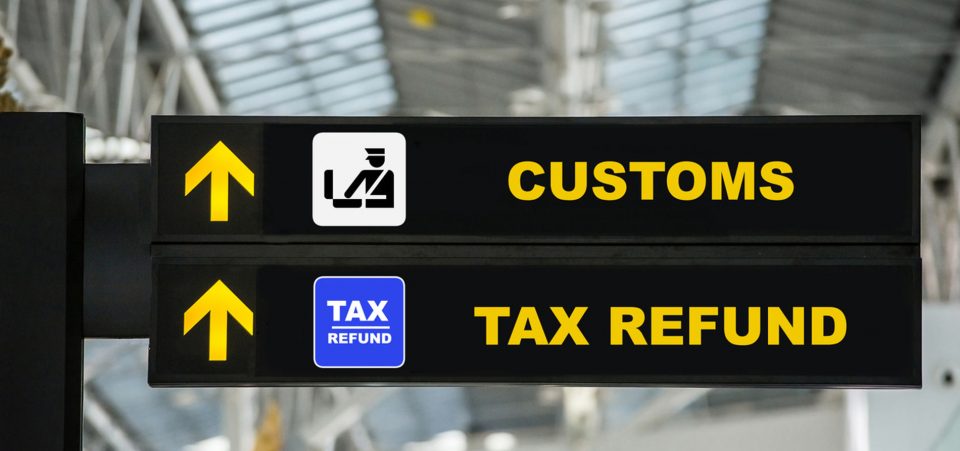The Effect of a Border Tax on the U.S. Economy
Canada’s minister of finance, Bill Morneau, is right. President Donald Trump’s proposed border tax plan won’t help the U.S. economy. In fact, if anything, it will hurt it. There’s no other way of looking at this, other than that the idea of suddenly imposing tariffs after years of free trade will cause more than a shock to the system. It will break that system, preventing an economic recovery.
Morneau was not speaking with a forked tongue. He did not hide his opinion that Canada’s economy would also suffer from a border tax adjustment. (Source: “Morneau says border tax might damage U.S. economy more than Canada’s,” Toronto Star, April 3, 2017.)
The general concept is that the border adjustment tax, in general, would be the American response to the European (and Canadian) value added tax or VAT. Not by chance, the acronym of border adjustment tax is BAT. It sounds a lot like VAT. Dozens of countries use VAT, say those who back Trump’s BAT.
True, BAT does sound like VAT, but that’s where the similarities end. Governments who use VAT apply it to the sale and exchange of all goods and services, regardless of where they come from. The BAT only applies to imports. Thus, no country retaliates because one of its partners uses VAT.
However, the imposition of a BAT will force affected governments to reciprocate. The border adjustment tax could prove a double-edged and very sharp sword indeed. That’s because it would force a sudden and defensive revision of the current rules and realities of international trade and economic relations between partners.
The Border Tax Hurts American Families More Than It Helps Businesses
The U.S. might as well leave the World Trade Organization (WTO), should it impose a border adjustment tax. Simply put, a U.S. border tax presumably to be imposed on all goods coming into the U.S. from Canada or Mexico would add unnecessary expenses on American businesses and American families. Morneau and his boss, Prime Minister Justin Trudeau, who represents the Canadian Liberal Party (which slants to the left of the Democrats in the U.S.) is not alone.
American conservative and free-market advocates have criticized some Trump policies. But, none more so than the border tax plan. It would surprise most observers to discover that none other than the Koch brothers and the “Club for Growth” oppose the border tax. They simply say it would hurt the economy. (Source: “Conservative Split Over Import Tax Imperils Trump’s Overhaul,” The New York Times, April 1, 2017.)
Apart from the economic miscalculation that the border tax plan might be, it’s a policy that will divide his own Republican Party. After the failure of Obamacare, Trump needs a major win in Congress to regain the consensus he got after his speech to the joint Houses on March 1. He made Obamacare a personal battle and he emerged embarrassed, at best.
Evidently, not all Republicans, and lobby groups that back them, see things Trump’s way. Trump should be careful not to lose another major proposal in Congress that would highlight Republican disunity. That would end up stalling other Trump plans that could benefit many Americans of all political colors.
There’s little doubt that Trump’s intentions are correct on the border tax. They deserve a fairer hearing than his opposition to Obamacare, for example. Trump wants to put an end to unfettered free trade, which arguably can hurt many American businesses. Trump wants to protect American manufacturers and the workers they employ.
That’s a goal beyond reproach. The question is how and whether the border tax might achieve that goal. The border tax idea is hardly innovative. Economists were studying the concept in the 1970s, long before the advent of the North American Free Trade Agreement or NAFTA (Source: Ibid.)
The Theory of the Border Tax Faces a Tough Reality Check
The theory goes that by imposing a 20% tax on all imports—exempting exports from any duties—it would help improve the appeal of American goods in foreign markets. The idea is that this pro-American manufacturing approach would encourage more investment in the U.S. as well as the repatriation of American fortunes held overseas.
The BAT only appears to be a simple solution. That might be its most appealing quality. But a closer look shows that it’s a “simple solution” to provoke an economic slowdown. Some manufacturers hope to reduce their income taxes through the BAT. The border tax would be accompanied by a provision allowing American companies to deduct the cost of manufacturing from taxable income.
Trump supports the idea of a border tax because he must find ways to finance his economic growth by way of an infrastructure improvement plan. Moreover, he wants to reduce income and business taxes across the board, thus an additional duty on foreign goods has a certain logic. But, in Trump’s ideal world, only America is a manufacturing power.
The reality is that if the U.S. started to impose a border tax, other countries would retaliate. They would make American products less competitive in their markets by imposing their own import duties. Some companies like Boeing Co (NYSE:BA), which faces more limited competition might like the tax, because it would improve its pricing when competing against such companies as Airbus Group SE (EPA:AIR) and now Bombardier, Inc. (TSE:BBD.B).
Indeed, Delta Air Lines, Inc. (NYSE:DAL) chose to buy Canadian-made Bombardier “CS100” jets, larger versions of which compete against the “Boeing 737.” But many components used by Bombardier or even the European Airbus, from engines to major components like avionics or landing gears, are often made in the United States.
The border tax could then persuade such major European industrial groups to source from European or Japanese manufacturers. The Koch brothers suggest that the import tax would make the price of oil more expensive, making American manufacturers less rather than more competitive. (Source: Ibid.)
Consider the following chart below: all amounts hypothetical and in dollars, with losses in brackets. (Source: “What is a border adjustment tax?,” Acropolis Investment Management, last accessed April 4, 2017.) Note, the only company that would gain an advantage from a border tax is a pure exporter. They simply don’t exist. And this hypothetical scenario doesn’t take into account the punitive measures other countries would enforce against U.S. goods.
|
Pure Domestic |
Pure Exporter |
Pure Importer |
|
| Revenue |
100 |
100 |
100 |
| Expenses |
(60) |
(60) |
(60) |
| Pre-Tax Profit |
40 |
40 |
40 |
| 20% Tax |
(8) |
40 |
40 |
| Border Adjustment |
0 |
20 |
(12) |
| After-Tax Profit |
32 |
52 |
20 |
The U.S. economic outlook is already wrought with risks without the effects of an import tax. The import tax goes short of tariffs, but the Trump administration has already announced vast increases to tariffs on goods from the European Union to China. Still, proponents of the border tax plan like the simple—but unlikely—returns it promises: over a trillion dollars in the next decade while reducing corporate taxes from 35% to 20%-15%.
But, border taxes and new tariffs are some of the very policies that Trump wants to adopt to boost growth, which could backfire. Instead of helping the U.S. economic growth rate, they could accelerate a process of economic collapse. Another unlikely source has warned as much. Mexico’s minister of foreign affairs Luis Videgaray used uncommonly rare “common sense.”
Commenting on Trump’s border tax plan to finance the construction of Trump’s U.S.-Mexico border wall, Videgaray reacted in the opposite manner most would have predicted. He explained in an interview that Mexico would not apply a border tax on all imports from the United States, because it would hurt the interests of Mexican consumers.
Similarly, it would hurt American consumers and manufacturers even as the BAT masks itself as a tool to stimulate exports. The problem is that the BAT, which is an import duty by another name, would cause the U.S. dollar to spike. This would make American products uncompetitive, while foreign ones could become even more competitive because of the currency value differential.
The Border Tax Could Boost U.S. Dollar
Moreover, the high dollar would create enormous problems for many emerging economies. The latter would have more chances of experiencing economic collapse than higher demand for U.S. goods. Thus, the BAT could promptly shift from becoming a kind of subsidy—however flawed—to an obstacle to America’s economic recovery.
The estimated revenue from the tax would vanish and become a liability before long. The border tax could cause far more damage to consumers, businesses and economic growth than discourage imports. The tax would ultimately trickle down to ordinary Americans, who would have to endure higher costs for just about everything.
Manufacturers would also face higher costs. Potentially, and ironically, they could end up having to cut jobs and endure lower profits. It would also hurt the very classes of citizens who voted for Trump in the first place. Consider that so many products Americans consume are imported from abroad.
A sudden increase in the cost of those goods would put many retail jobs at stake. It would also create a backlash because, no matter the quality, American companies would not be able to suddenly substitute those imported items with similar ones at the same price or quality. On a wider and more global scale, the border adjustment tax marks the first step of a dangerous evolution for the Trump presidency.
It signals to the rest of the world that protectionism is right and that it works. Should Trump truly enforce a border tax on all goods produced outside the United States, it would be nothing short of a declaration of war—even if in the form of a trade war. Lest anyone forget, most wars of the not so distant past began as trade wars.
Like all wars started on a whim and without provocation, nobody knows how far they could go and what collateral damage they might cause. The border tax, where Europe is concerned, stems from a dispute involving American beef. Yet a host of American companies with crucial components of their value chains located outside the U.S. would suffer.






